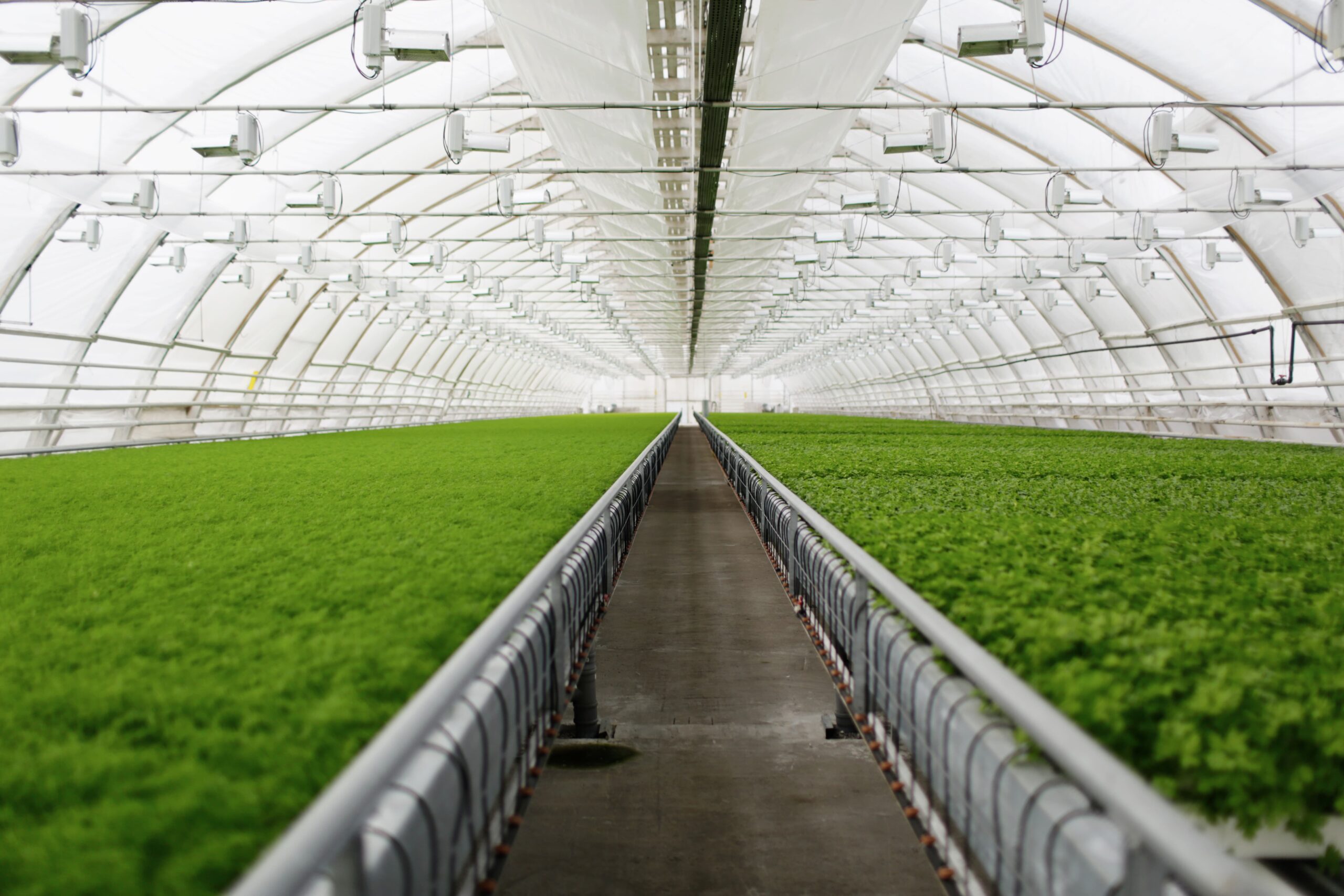Each year, the rainy season brings significant challenges for farmers, including excess moisture, soil erosion, weed proliferation, and an increase in pests that can drastically reduce crop quality. To tackle these conditions, agricultural fabrics have become practical and sustainable solutions, allowing farmers to protect and maximize crop performance even during the most challenging months.
Among these solutions, two products stand out for their effectiveness: anti-virus mesh and ground covers. Each offers unique benefits, but when used together, their potential multiplies, providing growers with a comprehensive shield against the challenges of the rainy season.
Anti-Virus Mesh, a Physical Barrier That Reduces Pests
High-density polypropylene anti-virus mesh acts as a physical barrier against harmful insects that thrive in humid conditions. Pests such as whiteflies, aphids, and thrips not only damage leaves and fruits but also transmit viruses that can destroy an entire harvest.
Unlike pesticides, which lose effectiveness when washed away by rain, anti-virus mesh provides consistent protection throughout the rainy season. It also regulates airflow and light, maintaining optimal conditions within the protected area. Its strength and durability make it a cost-effective investment for producers of vegetables, flowers, and other sensitive crops.
In agricultural projects, this fabric not only prevents pest-related losses but also improves crop quality, ensuring healthier produce with higher commercial value. It is also used in the food industry and storage facilities as an additional measure to maintain product safety.
Ground Covers, Comprehensive Protection Against Weeds
Ground covers, or “ground cover” fabrics, are another essential agricultural tool during the rainy season. Their main function is to prevent weed growth by blocking sunlight, reducing competition for nutrients and water. This allows crops to grow in a cleaner, more efficient environment without constant reliance on herbicides.
During the rainy season, ground covers also play a key role in maintaining soil moisture, preventing excessive evaporation, and promoting proper water balance. At the same time, they protect against erosion caused by wind and rain, preserving the topsoil layer.
Another benefit is enhanced plant growth: by maintaining moisture and reducing weed competition, crops develop more vigorously and productively. With a lifespan of over seven years under normal conditions and the ability to be custom-made, ground covers are a versatile solution for greenhouses, open-field production, and other agro-industrial projects.
Combine Anti-Virus Mesh and Ground Covers for Optimal Rainy-Season Crop Protection
While anti-virus mesh and ground covers are effective individually, their true strength is realized when used together during the rainy season.
Anti-virus mesh protects the aerial parts of crops by preventing pests and reducing the risk of viral diseases. At the same time, ground covers safeguard the base of the production system by controlling weeds, maintaining soil moisture, and protecting against erosion.
This combination creates a comprehensive protection system that reduces losses, improves resource efficiency, and ensures continuous agricultural production during a period typically fraught with risk. By reducing reliance on chemical inputs, both fabrics also promote more sustainable and environmentally friendly farming practices.
Tips to Maximize Agricultural Fabrics’ Effectiveness During the Rainy Season
To get the most from these solutions, consider these key points:
- Proper installation: Anti-virus mesh should be installed without gaps to prevent insect entry, while ground covers should be laid taut, avoiding folds that compromise performance.
- Selecting the right product: Choose the appropriate mesh density based on crop type and target pests. For ground covers, select size and color according to the specific needs of the terrain.
- Regular maintenance: Clean fabrics periodically to remove dust and debris, ensuring durability and effectiveness throughout multiple growing cycles.
Following these best practices allows both anti-virus mesh and ground covers to perform efficiently, maximizing return on investment.
Polyproductos’ Agricultural Fabrics Are Your Rainy-Season Allies
The rainy season doesn’t have to mean losses or reduced productivity for your crops. With the right agricultural fabrics, growers can turn this period into an opportunity to maintain harvest continuity and improve crop quality.
Anti-virus mesh and ground covers are complementary solutions that, when used together, provide a comprehensive system of protection against the main challenges of the rainy season: pests, weeds, erosion, and excess moisture.
At Polyproductos de Guatemala, we specialize in manufacturing these agricultural fabrics using 100% virgin polypropylene and international quality standards, ensuring durability, effectiveness, and reliability for every production cycle. With our products, your crops will be better prepared to face the rainy season and achieve optimal yields.



